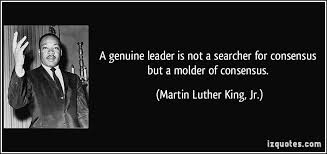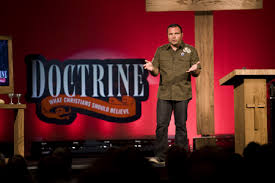 The Five Fold = Peer2Peer Relationships – Part V
The Five Fold = Peer2Peer Relationships – Part V
John 4:19, 23-24 (AS) – The woman said to Him, “Sir, I perceive that You are a prophet.” …..”But an hour is coming and now is, when the true worshipers will worship the Father in spirit and truth; for such people the Father seeks to be His worshipers. God is spirit, and those who worship Him must worship in spirit and truth.”
2 Peter 1:19 (NIV) - We also have the prophetic message as something completely reliable, and you will do well to pay attention to it, as to a light shining in a dark place, until the day dawns and the morning star rises in your hearts.
I Thessalonians 5: 18-19 (AS) – Do not quench the Spirit; do not despise prophetic utterances.
“Worshipers will worship the Father in spirit and truth; for such people the Father seeks to be His worshipers. God is spirit, and those who worship Him must worship in spirit and truth.” As much as the teacher is driven to transform the Logos, written Word, the Bible, into a Rhema Word, to bring life into a believer’s faith, the prophet is driven to “draw near to God” through the Spirit. Worship is central to a prophet’s existence. A prophet desires to be in God’s Presence to draw life. If Truth is recorded in the written Logos Word, the prophet yearns the Spirit’s revelation of that Truth to bring a living Rhema Word. If churches wish to worship in Spirit and in Truth, then the teacher and the prophet must unite to reveal written Truth, the Logos, as practical living Truth, the Rhema. Together they can bring a dynamic power of worship to any local church.
 The prophet can also be a powerful asset to an evangelist. Jesus used prophetic evangelism when talking to the Samaritan woman at the well by using personal prophecy, discernment, and wisdom to reveal the woman’s background. There is no way Jesus could intellectually know these details since he never met the woman before. He received them through divine knowledge, the supernatural, the Rhema knowledge. This revelation verifies him as a prophet to her, so he reveals his messiahship to her, a Samaritan, a woman, even before he reveals it to his own Jewish male disciples, for she was ready to accept it. Now touched by the supernatural, the woman invites Jesus to stay bringing revival among her family and the people in her town.
The prophet can also be a powerful asset to an evangelist. Jesus used prophetic evangelism when talking to the Samaritan woman at the well by using personal prophecy, discernment, and wisdom to reveal the woman’s background. There is no way Jesus could intellectually know these details since he never met the woman before. He received them through divine knowledge, the supernatural, the Rhema knowledge. This revelation verifies him as a prophet to her, so he reveals his messiahship to her, a Samaritan, a woman, even before he reveals it to his own Jewish male disciples, for she was ready to accept it. Now touched by the supernatural, the woman invites Jesus to stay bringing revival among her family and the people in her town.
A prophet can push one’s faith beyond an evangelistic message Acts 19:1-7 records how Paul followed Apollos, who was an evangelist, into Ephesus. It happened that while Apollos was at Corinth, Paul passed through the upper country and came to Ephesus, and found some disciples. He said to them, “Did you receive the Holy Spirit when you believed?
They said to him, “No, we have not even heard whether there is a Holy Spirit.”
He said, “Into what then were you baptized?”
They said, “Into John’s baptism.”
Paul said, “John baptized with the baptism of repentance, telling the people to believe in Him who was coming after him, that is, in Jesus.”
When they heard this, they were baptized in the name of the Lord Jesus. When Paul had laid his hands upon them, the Holy Spirit came on them, and they began speaking with tongues and prophesying. There were in all about twelve men.
These disciples who had received B.A. Degrees, “Born Again”, had repented of their sins and now believed in Jesus, but they did not know they could have B.S. Degrees, “Born of the Spirit”. When they heard that Jesus was the one, who was coming after him, (John the Baptist), they were baptized (in water) in the name of the Lord Jesus. There was more! When Paul had laid his hands upon them, the Holy Spirit came on them. They were baptized in the Holy Spirit (of Jesus Christ) which was evidenced by speaking with tongues and prophesying. Common believers in Jesus were prophesying! To speak in tongues and prophesy, you had to be both “Born Again” and “Born of the Spirit”!
If what Jesus said to the woman at the well is true, “True worshipers will worship the Father in spirit and truth; for such people the Father seeks to be His worshipers. God is spirit, and those who worship Him must worship in spirit and truth,” then what these disciples had heard from Apollos earlier was truth. Now Paul was introducing them to the spirit.
Now let’s look at a chapter earlier, Acts 18:24-26, to see who is this Apollos.
Now a Jew named Apollos, an Alexandrian by birth, an eloquent man, came to Ephesus; and he was mighty in the Scriptures. This man had been instructed in the way of the Lord; and being fervent in spirit, he was speaking and searching accurately the things concerning Jesus, being acquainted only with the baptism of John; and he began to speak out boldly in the synagogue. But when Priscilla and Aquila heard him, they took him aside and explained to him the way of God more accurately. Like Paul instructed the disciples at Ephesus, Priscilla and Aquila explained to him the way of God more accurately. They explained the Holy Spirit to him. Now Apollos knew both the “truth” and the “spirit”, fulfilling the call of becoming a true worshiper that the Father desires!
Paul, Priscilla and Aquila, Apollos, and the Ephesian disciples were now on the same page. That is why Paul confronted the Corinthians: I exhort you, brethren, by the name of our Lord Jesus Christ, that you all agree and that there is no divisions among you, but that you be made complete in the same mind and in the same judgment. For I have been informed concerning you, my brethren, by Chloe’s people, that there are quarrels among you. Now I say this, that each of you says, “I am of Paul,” or “I am of Apollos,” or “I am of Cephas,” or “I am of Christ.” Has Christ been divided? - 1 Corinthians 1:10-12
That is also why Paul writes, When one says, “I am of Paul,” and another, “I am of Apollos,” are you not carnal? – 1 Corinthians 3:4

 Even today’s church has a division between the “truth” camp emphasizing correct doctrine and theology and the “spirit” camp wanting to experience life in the Spirit. Paul asks are you not carnal when you have these divisive attitudes? True worshipers will worship the Father in spirit and truth; for such people the Father seeks to be His worshipers! Like Paul, Priscilla and Aquila, Apollos, and the Ephesian disciples, let’s embrace the revelation that we are to worship in BOTH Truth and Spirit! Both spirit and truth are to be taken seriously. Ask Ananias and his wife Sapphaira and the first century church as recorded in Acts 5: 1-11:
Even today’s church has a division between the “truth” camp emphasizing correct doctrine and theology and the “spirit” camp wanting to experience life in the Spirit. Paul asks are you not carnal when you have these divisive attitudes? True worshipers will worship the Father in spirit and truth; for such people the Father seeks to be His worshipers! Like Paul, Priscilla and Aquila, Apollos, and the Ephesian disciples, let’s embrace the revelation that we are to worship in BOTH Truth and Spirit! Both spirit and truth are to be taken seriously. Ask Ananias and his wife Sapphaira and the first century church as recorded in Acts 5: 1-11:
A certain man named Ananias, with Sapphira his wife, sold a possession. He kept back part of the proceeds, his wife also being aware of it, and brought a certain part and laid it at the apostles’ feet.
Peter said, “Ananias, why has Satan filled your heart to lie to the Holy Spirit and keep back part of the price of the land for yourself? While it remained, was it not your own? And after it was sold, was it not in your own control? Why have you conceived this thing in your heart? You have not lied to men but to God.”
Then Ananias, hearing these words, fell down and breathed his last, so great fear came upon all those who heard these things. The young men arose and wrapped him up, carried him out, and buried him.
Now it was about three hours later when his wife came in, not knowing what had happened. Peter answered, “Tell me whether you sold the land for so much?”
She said, “Yes, for so much.”
Then Peter said to her, “How is it that you have agreed together to test the Spirit of the Lord? Look, the feet of those who have buried your husband are at the door, and they will carry you out.” Then immediately she fell down at his feet and breathed her last. And the young men came in and found her dead, and carrying her out, buried her by her husband. Great fear came upon all the church and upon all who heard these things.
The 21st century Church has to recognize that we also have the prophetic message as something completely reliable, and you will do well to pay attention to it, as to a light shining in a dark place, until the day dawns and the morning star rises in your hearts. – 2 Peter 1:19 (NIV)
The prophetic is a powerful tool that is needed beside that of the evangelist, shepherd, teacher, and apostle to serve them and be served by them. That is the power of the Peer2Peer five fold model. We need to heed Paul’s advice in I Thessalonians 5:19-19 (AS) – Do not quench the Spirit; do not despise prophetic utterances, and let’s worship the Father in spirit and truth; for such people the Father seeks to be His worshipers- John 4:19, 23-24.
 Options: Traditions or Change
Options: Traditions or Change



































































